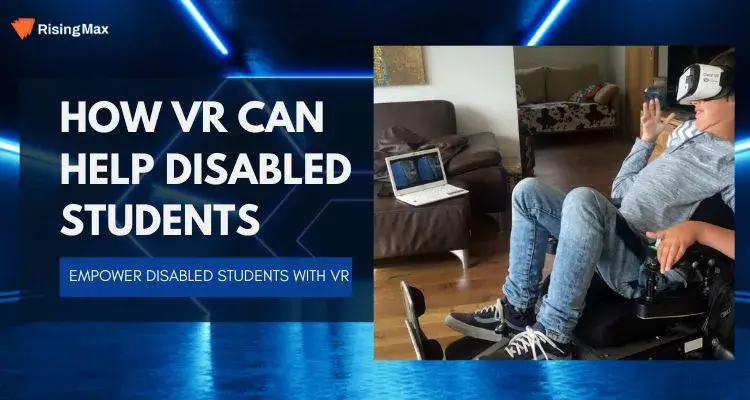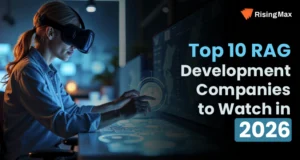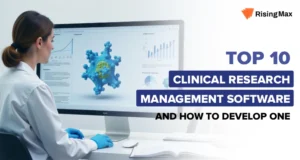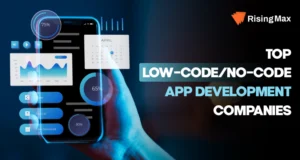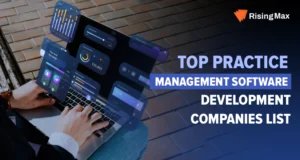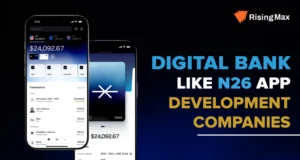In an era of rapidly advancing technology, VR offers a unique gateway to a world of inclusive education and limitless possibilities. This innovative technology has the potential to break down physical barriers and empower students with disabilities to access immersive learning experiences.

Join us as we delve into the myriad ways in which VR is revolutionizing education, enhancing accessibility, and fostering an inclusive environment where every student can thrive, regardless of their physical challenges. Discover how VR is reshaping the future of education for disabled students.
Why VR Is Necessary In Current Situation
Virtual Reality (VR) is indispensable in today’s world as it bridges gaps, enhances experiences, and solves real-world challenges. In education, it provides immersive learning, making complex concepts tangible. In healthcare, VR aids in training, therapy, and pain management. It connects people globally for virtual meetings and collaboration.
Moreover, it offers entertainment and simulations for various industries. In a post-pandemic world, VR apps have proven their worth by offering remote experiences, reducing travel, and fostering innovation. It’s an essential tool for the current world, unlocking new dimensions of interaction, education, and problem-solving.
Unlock Inclusive Education
Join RisingMax Inc. in revolutionizing education for disabled students through cutting-edge VR technology. Contact us today to explore the endless possibilities of inclusive learning.
How Virtual Reality Will Help Disabled Students
Virtual Reality is a powerful tool for empowering disabled students, offering them opportunities to learn, grow, and participate in society on an equal footing with their peers.
Inclusive Learning Environments
VR creates inclusive spaces where disabled students can participate in the same educational activities as their peers. It breaks down physical barriers and offers equal opportunities for engagement.
Customized Learning Experiences
Virtual Reality allows for personalized learning. Disabled students can adapt content, pace, and accessibility features to suit their individual needs, ensuring a tailored education experience.
Accessibility Tools
VR offers a range of accessibility features, such as voice commands, gesture controls, and text-to-speech, which enable students with various disabilities to interact with educational content.
Interactive Learning
VR immerses students in interactive and multisensory experiences. This enhances understanding and retention of information, benefiting students with cognitive disabilities.
Physical Therapy and Rehabilitation
VR serves as a valuable tool for physical therapy and rehabilitation. It can offer engaging exercises and simulations to aid in the recovery process.
Social Interaction
VR facilitates social interaction for students with disabilities. They can participate in virtual classrooms, collaborate with peers, and develop essential social skills.
Safe Learning Environment
For students with anxiety or phobias, VR provides a controlled and safe environment for exposure therapy, helping them overcome their fears and build confidence.
Access to Inaccessible Locations
VR can transport students to locations that may be physically inaccessible due to disabilities. This opens up opportunities for virtual field trips and cultural experiences.
Assistive Technology Integration
VR can seamlessly integrate with assistive technologies, such as screen readers and braille displays, ensuring compatibility with existing tools used by disabled students.
Real-World Skill Development
VR offers practical training in job-related skills, allowing disabled students to gain hands-on experience in a controlled, risk-free environment, improving their employability.
Also Read: VR Game Development Software
Features of Virtual Reality App For Disabled Students
These features make VR applications more inclusive and empower disabled students to access and benefit from virtual reality-based learning experiences.
Accessibility Settings
Customizable accessibility settings, including font size, color contrast, and voice commands, to cater to various disabilities.
Text-to-Speech Integration
Text-to-speech functionality to assist visually impaired students in reading and understanding text-based content.
Voice Commands
Voice recognition for hands-free navigation and control, benefiting students with mobility impairments.
Gaze-Based Interaction
Gaze-based controls for students with limited motor skills, allow them to interact with the VR environment.
Subtitles and Transcripts
Subtitle support and transcript options for students with hearing impairments, ensuring they don’t miss any content.
Multi-Sensory Learning
Multi-sensory experiences, combining visuals, audio, and tactile feedback to engage students with sensory impairments.
Customizable Pace
Adjustable pacing of content delivery to accommodate students with cognitive disabilities, allowing them to learn at their own speed.
Interactive Assessments
In-app assessments with adaptable difficulty levels to evaluate student progress and adapt content accordingly.
Therapeutic Modules
VR modules for physical therapy and rehabilitation, tailored to the specific needs of students with mobility impairments.
Collaborative Virtual Spaces
Shared virtual classrooms or group projects that facilitate collaboration and communication, promoting social interaction for all students.
Are you ready to make a difference in the lives of disabled students? Collaborate with RisingMax Inc. to develop innovative VR solutions.
Tech Stack Used To Build VR For Disabled Students
Building a VR app for disabled students requires a well-rounded technology stack to ensure accessibility and usability. Here’s a tech stack for such an application:
Development Platforms
– Unity 3D: A versatile platform for VR app development, compatible with various VR headsets.
– Unreal Engine: Another powerful engine suitable for creating VR content.
Programming Languages
– C# for Unity or C++ for Unreal Engine for coding the VR application.
VR Headset SDKs
– Oculus SDK: For Oculus headsets like Rift and Quest.
– SteamVR: For HTC Vive and other SteamVR-compatible devices.
– OpenVR: An open-source option for various VR headsets.
Accessibility Features
– Integration of accessibility features for voice commands, text-to-speech, and gesture controls.
Input Handling
– Motion controllers for precise tracking of hand movements and interactions.
– Support for spatial tracking systems like Lighthouse or Constellation for headset and controller positioning.
Graphics and Rendering
– Utilization of OpenGL or DirectX for rendering 3D graphics in the VR environment.
– Creation of custom shaders for visual effects.
Audio Integration
– Integration of VR Audio SDKs for spatial audio, providing an immersive experience.
User Interface (UI)
– UI frameworks like Unity’s UI system or Unreal Engine’s UMG for creating accessible menus and HUD elements.
Accessibility Testing
– Testing tools and practices to ensure the VR app’s accessibility and usability for disabled students.
Content Creation
– Utilization of 3D modeling and animation software for creating 3D assets.
– Inclusion of educational content tailored to the curriculum and learning goals of disabled students.
Networking
– Networking libraries and protocols for multiplayer and collaborative VR experiences.
Performance Optimization
– Profiling and debugging tools to optimize the VR app’s performance, critical for avoiding motion sickness in disabled students.
Cloud Services
– Cloud platforms for content distribution, updates, and data storage.
By utilizing this technology stack, developers can develop VR applications that are both accessible and engaging for disabled students, fostering inclusive and immersive learning experiences.
Also Read: Virtual Exhibition Platform Development
How We Can Help To Build VR For Disabled Students
By offering these services, RisingMax Inc. can play a crucial role in advancing inclusive education and empowering disabled students through the use of VR technology.
Needs Assessment
RisingMax Inc. can conduct a thorough needs assessment to identify the specific requirements and challenges of disabled students, ensuring that VR solutions cater to their unique needs.
Custom VR Development
The company can develop tailored VR applications and experiences, taking into account the specific disabilities of students and creating content that aligns with their educational goals.
Accessibility Integration
RisingMax Inc. can implement accessibility features like voice recognition, gesture controls, and text-to-speech to make VR content accessible to a wide range of disabilities.
Training and Support
We can provide training and ongoing technical support to educators and students to ensure a smooth VR implementation.
Content Creation
The company can create educational content, simulations, and interactive experiences that cater to the curriculum and learning objectives of disabled students.
Social Integration
RisingMax Inc. can develop VR solutions that facilitate social interaction, enabling disabled students to collaborate with peers and develop essential communication skills.
Therapeutic VR
The company can design VR applications for physical therapy and rehabilitation, aiding students with mobility impairments or other physical disabilities.
Research and Evaluation
RisingMax Inc. can conduct research and evaluation of the VR solutions to ensure they are effective in enhancing the educational experience for disabled students, making necessary improvements based on feedback and data.
Why Hire RisingMax’s Developers To Build VR App
RisingMax Inc. stands as an exceptional choice for VR development for disabled students due to several key factors:
Expertise in Inclusive Technology
RisingMax Inc.’s developers possess a deep understanding of inclusive technology solutions, enabling them to tailor VR experiences to meet the unique needs of disabled students effectively.
Customized Solutions
The company specializes in creating custom VR applications, ensuring that each solution is designed to accommodate the specific requirements and challenges of disabled students.
Accessibility Integration
RisingMax Inc. excels in implementing accessibility features within VR applications, making content usable for students with diverse disabilities, including visual, auditory, and motor impairments.
Experience with Diverse Disabilities
Our developers have experience working with a wide range of disabilities, from mobility impairments to sensory impairments, and can design VR solutions that cater to each.
User-Centered Design
RisingMax Inc. prioritizes a user-centered design approach involving disabled students, educators, and experts to ensure that the VR applications align with their educational goals and preferences.
Research and Evaluation
Our team conducts research and evaluation of VR solutions to ensure their effectiveness in enhancing the educational experience for disabled students, making necessary improvements based on feedback and data.
By choosing RisingMax Inc., you can be assured of a partner with the expertise, commitment, and dedication to making a significant impact on the education and well-being of disabled students through the development of tailored VR solutions.
Also Read: Virtual Time Capsule App
Cost To Build Virtual Reality For Disabled Students
| Designing Cost | $15K – $20K |
| Outsource Software Cost | $20K- $27K |
| Deployment Cost | $5K-8K |
| Feature Integration Cost | $9K – $15K |
| Maintenance Cost | $1,500 – $4,000 |
| Project Manager Hourly Cost | $25 – $50/Hour |
| Quality Assurance Team And Testers | $5K – $10K |
Conclusion
RisingMax Inc. stands as a beacon of innovation and inclusivity in the realm of VR development. With their unwavering commitment to harnessing technology for the benefit of disabled students, they exemplify a vision of equitable education.
Our expertise in creating customized VR solutions, integration of accessibility features, and a user-centered approach make them a trailblazer in the field. RisingMax Inc. not only designs immersive learning experiences but also fosters a sense of empowerment and belonging among disabled students. Our dedication to research, support, and continuous improvement ensures a brighter and more inclusive future for all learners.

